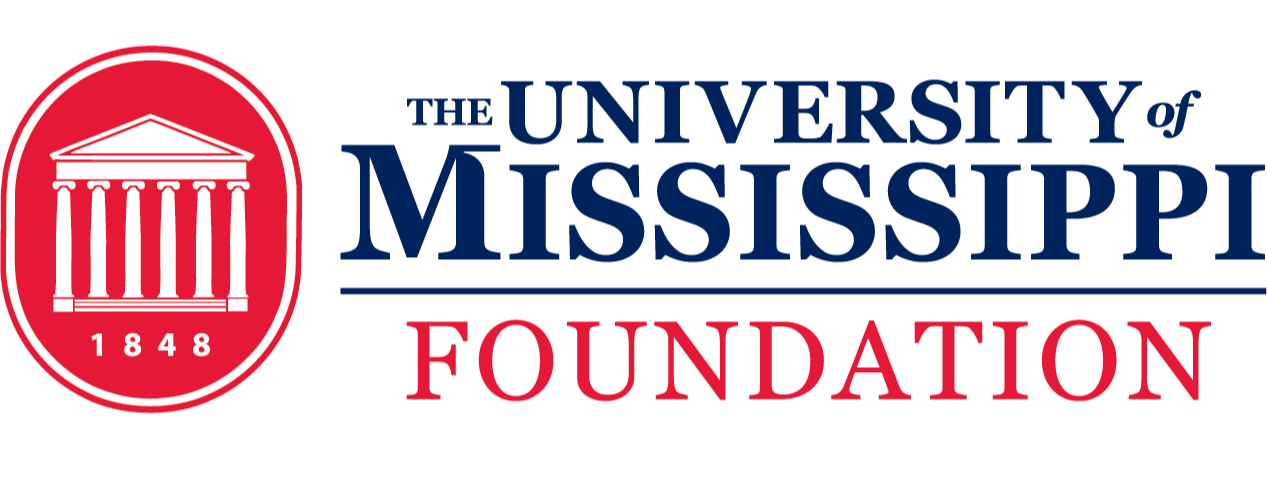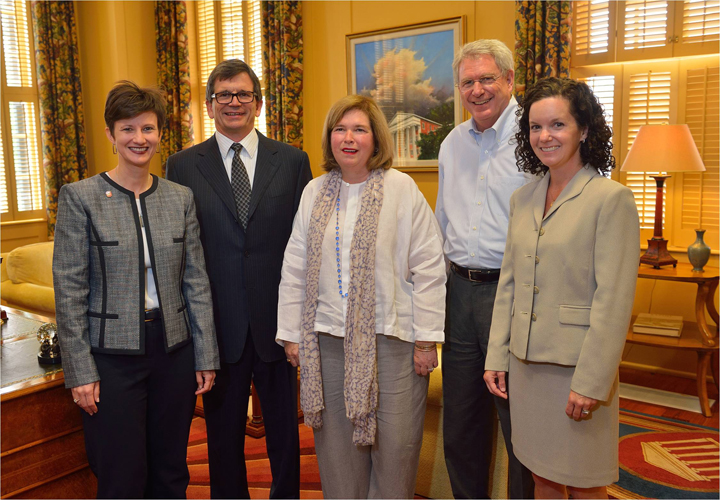A college campus can sometimes seem like an untenable environment for those students enrolling or returning to classes after treatment for alcohol or substance abuse. Thanks to an initiative to expand support services for such students, the Collegiate Recovery Community (CRC) at the University of Mississippi has received new private support.
The UM CRC has been in existence since 2010, but efforts are underway to attract private funding to expand services to students and raise awareness of programming. Dr. Glenn and Sharon Hunt of Oxford, Miss., have stepped forward with a lead gift to establish an endowment for the program and are encouraging others to join them. In addition, the UM CRC has received a grant from the Stacie Mathewson Foundation.
"Sharon and I decided to become involved in the Collegiate Recovery Community because of the great need we saw among young people," said Dr. Hunt, who is a longtime physician specialist in Oxford. "Our son Clark was attending law school at another university and came across a support group that was extremely important to him throughout his successful completion of a juris doctor degree. We recognized how key that support can be for individuals."
To date, the non-profit Stacie Mathewson Foundation in Reno, Nev., has helped to fight one of the nation's fastest-growing epidemics by educating lawmakers, building awareness and funding community capacity-building efforts for youth and young adults in recovery. The foundation awarded 100 grants, and the UM CRC was one of the recipients.
Approximately 80 CRCs are beginning or are operating across the nation, and many are following a model developed by Texas Tech University. According to Texas Tech data from 28 programs that implemented the model, students involved in a collegiate recovery community have a lower relapse rate, an average grade-point average of 3.34 and a graduation rate that exceeds 80 percent.
"Collegiate recovery programs are proving to be an effective way of supporting students who are in recovery from alcohol and drug use or addressing other issues," said Brandi Hephner LaBanc, vice chancellor for student affairs on the Oxford campus. "We are deeply grateful for Sharon and Glenn Hunt's generous private gift to support Ole Miss' efforts in this critical area, as well as for the grant from the Stacie Mathews Foundation. We encourage others to join the Ole Miss family in our efforts to support the needs of students in recovery who are actively pursuing academic goals. We want these students to know they are not alone."
According to the Association of Recovery in Higher Education, approximately 21 percent of the young adult population between 18 and 21 meet the criteria for substance abuse disorders, making a college campus a "fertile ground for supporting students in recovery and positively impacting the stigma associated with addiction. A collegiate recovery program … is designed to provide an educational opportunity alongside recovery support to ensure that students do not have to sacrifice one for the other."
Dr. Hunt agrees with this description. "Collegiate recovery communities are having a huge impact on individual lives. With support, students can finish their college degrees, pursue meaningful careers and adopt healthy lifestyles. My family and I want to be part of a support system that helps students meet the challenges of returning to campus after treatment. We feel there is an obvious need for this program and want to see students have a safe place where there is a circle of support and services to help them navigate through their remaining college years," he said.
Clark Hunt echoes that sentiment. "Only because of sobriety am I able to further my education by pursuing a master's in professional counseling at the University of Mississippi. My hope is that every student in recovery receives the same opportunity and support I have received in order for them to achieve their academic goals."
The UM CRC is open to undergraduate and graduate students enrolled in a minimum of three credit hours. Other criteria for participation in the program include a minimum of six months of continuous sobriety, submission of a biographical or recovery statement, abstinence from use of alcohol and/or drugs at all times, completion of academic advising requirements, attendance at weekly seminars focused on recovery topics, participation in weekly Recovery Night and compliance with other university-related obligations.
Susan Nicholas — who heads the advisory committee overseeing the UM CRC, as well as serving as an academic mentor in the College of Liberal Arts and program coordinator of the North Mississippi VISTA Project — said there is an array of goals for the program.
"We are grateful to the Hunt family for their gift and hope many others will be inspired to make a similar investment in our young people. Increased funding will allow us to reach more students and offer more and improved services. As a result of the support they have received, many students in recovery are committed to outreach and community service, contributing to a vibrant recovery community and improved public health for our entire university," Nicolas said.
Those wishing to participate in, or learn more about, the UM CRC can email recovery@olemiss.edu or call (662) 426-1714.
Individuals and organizations interested in supporting the UM CRC can mail a check with the fund noted in the memo line to the University of Mississippi Foundation, 406 University Avenue, Oxford, MS 38655; contact Sarah Hollis, associate director of development at shollis@olemiss.edu or 662-915-1584; or visit www.umfoundation.com/makeagift.
Tina Hahn

